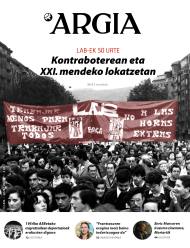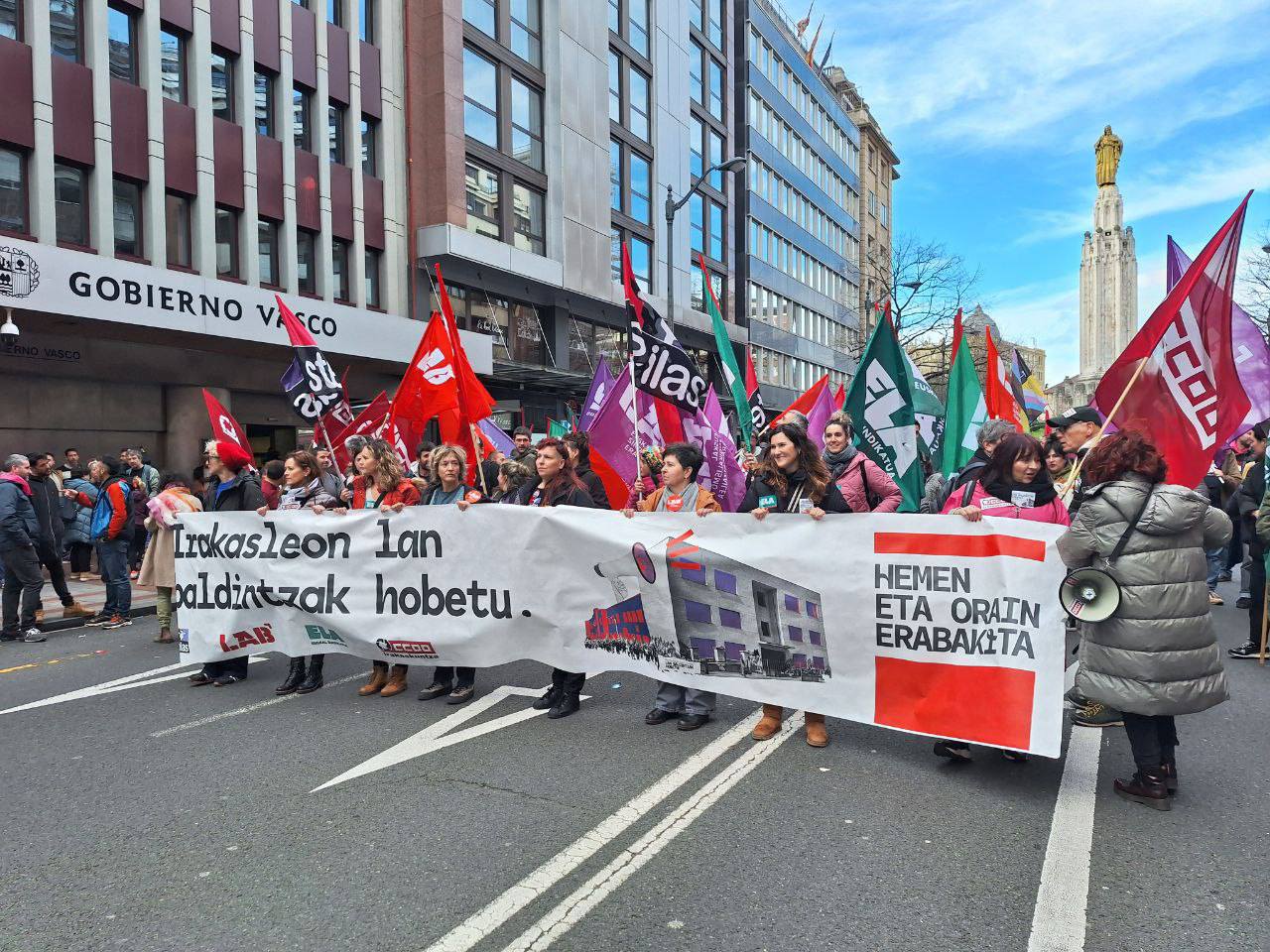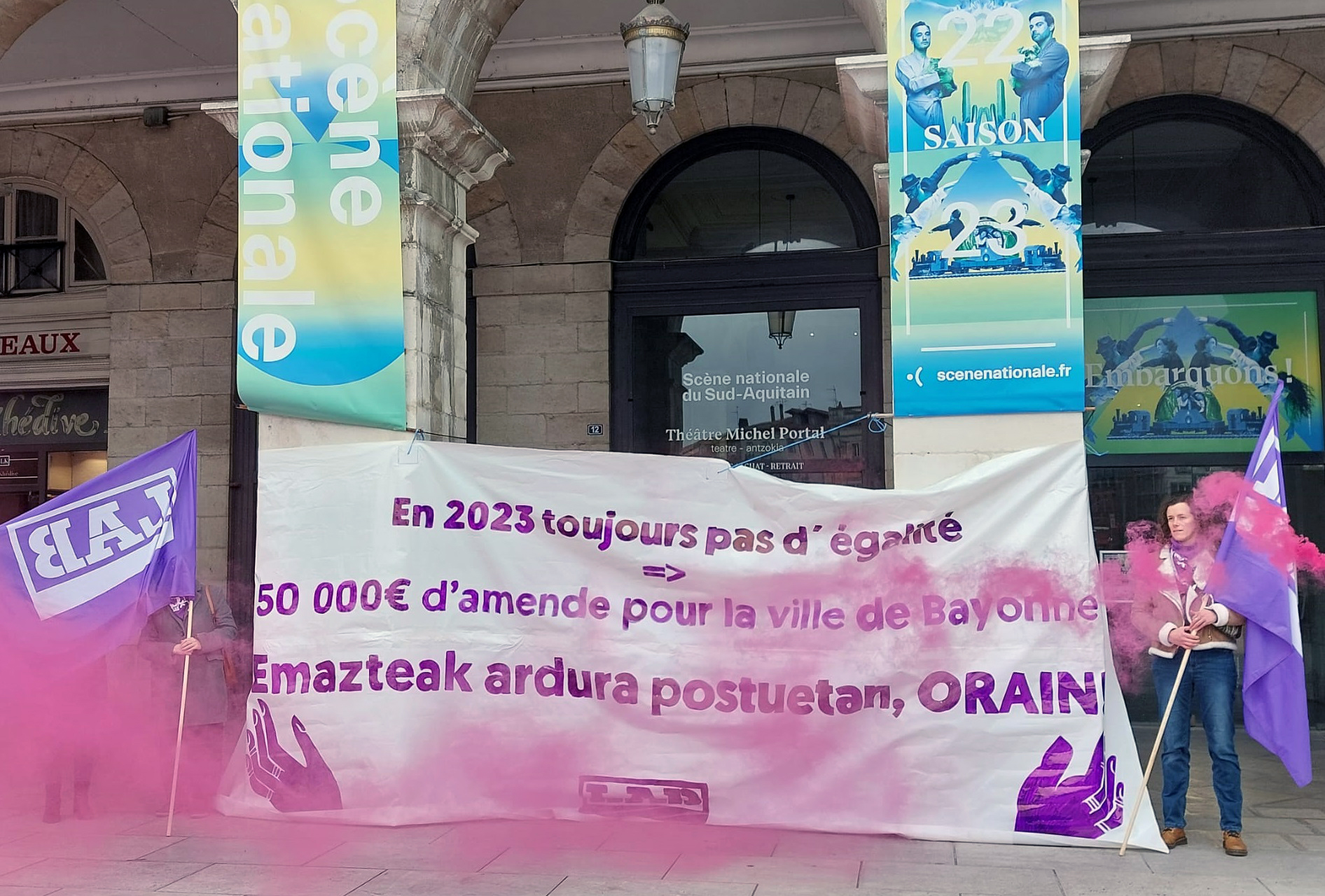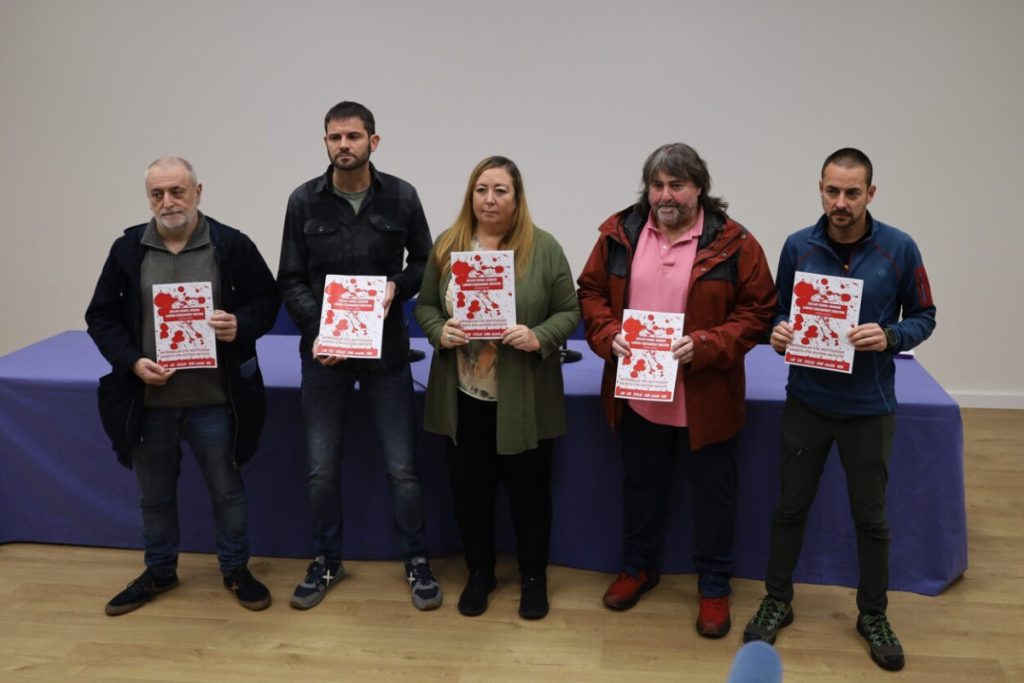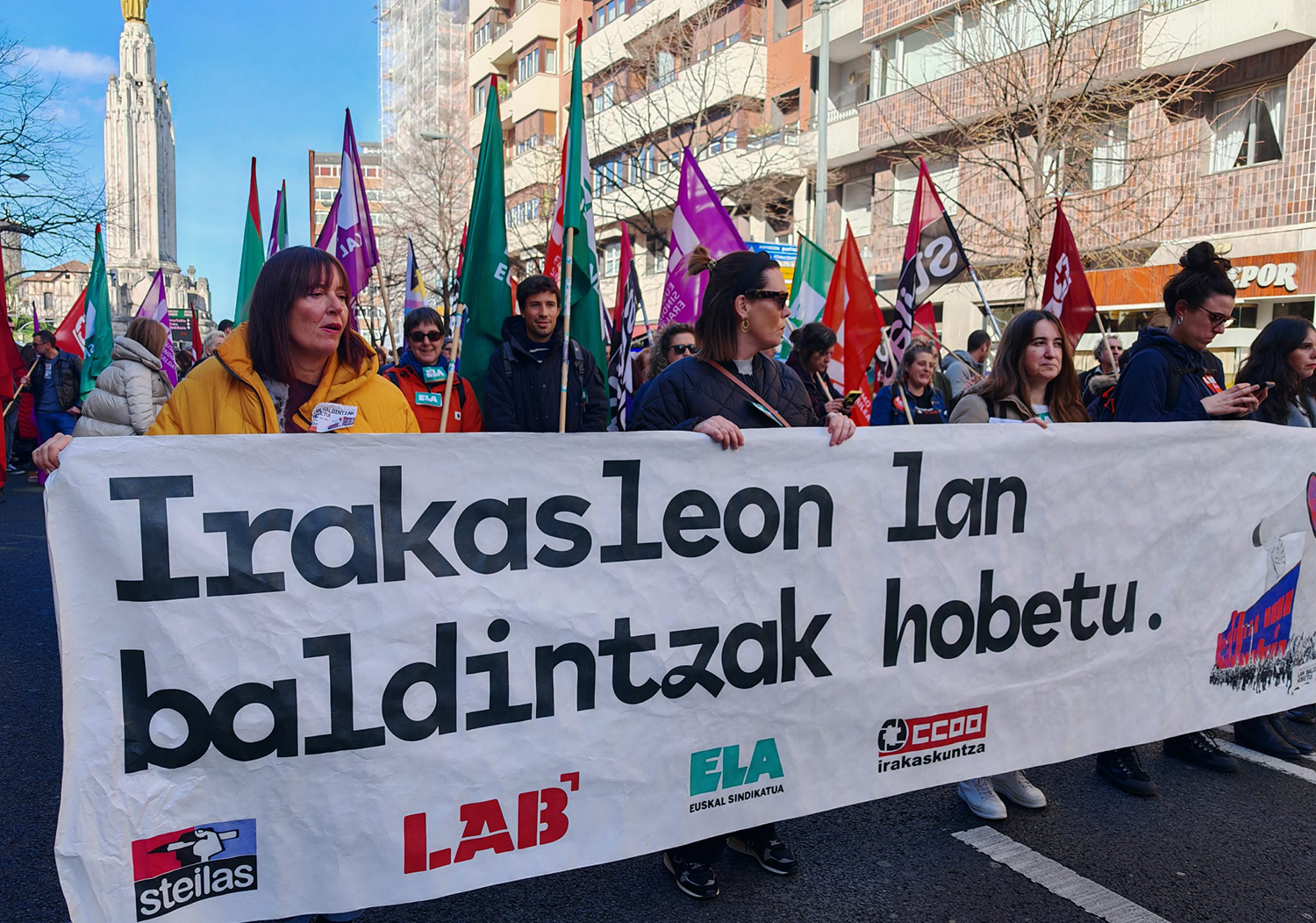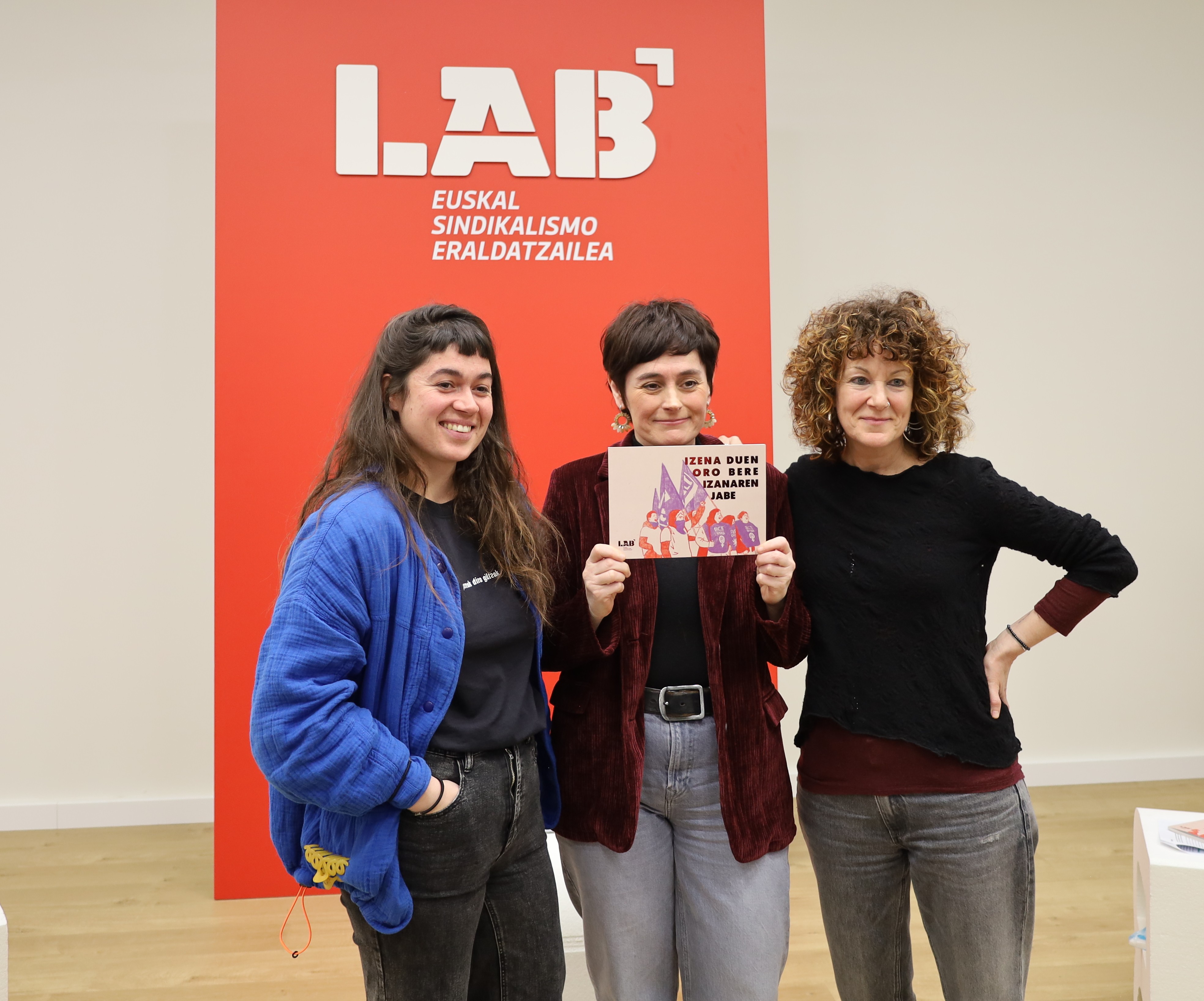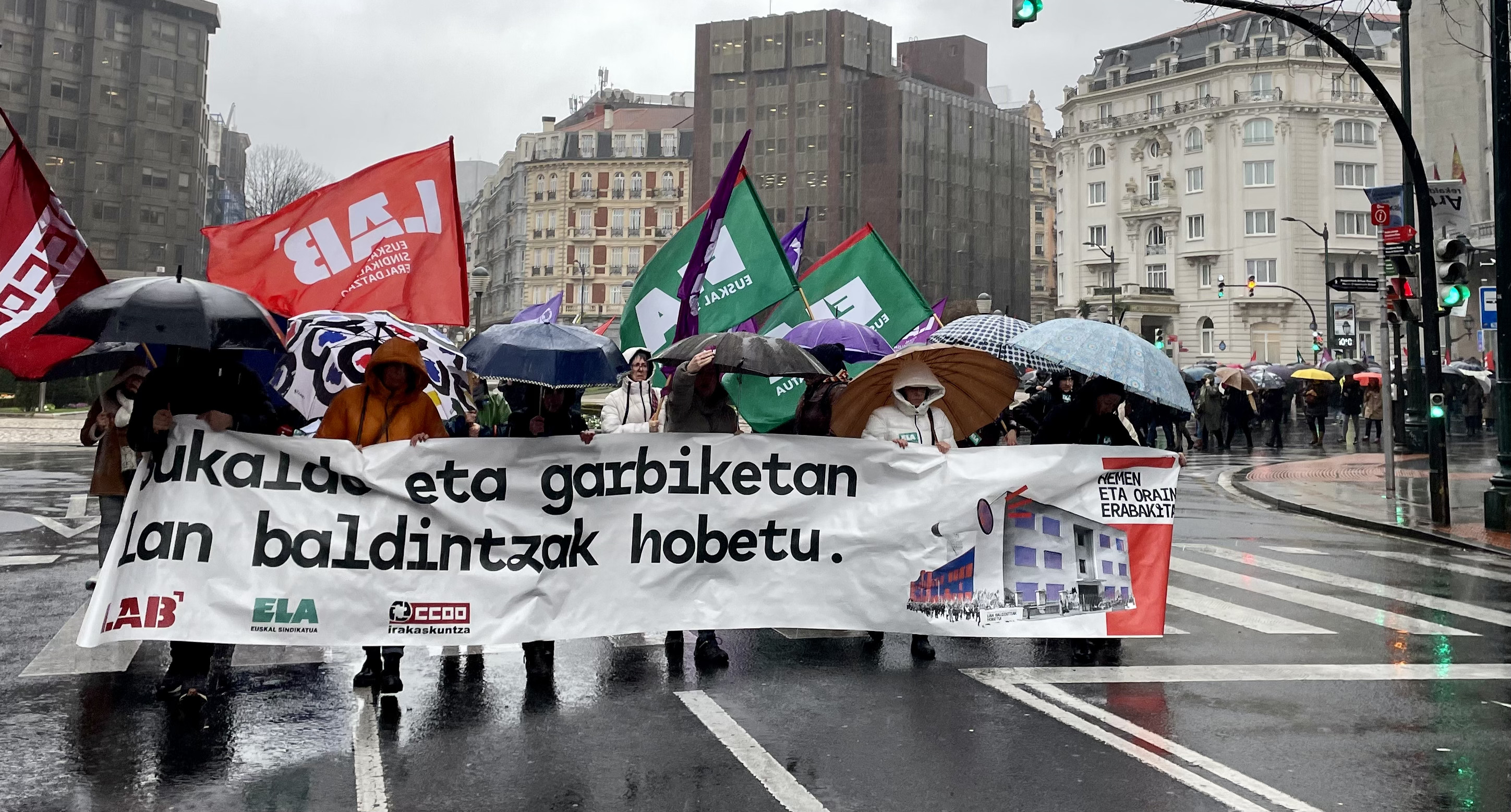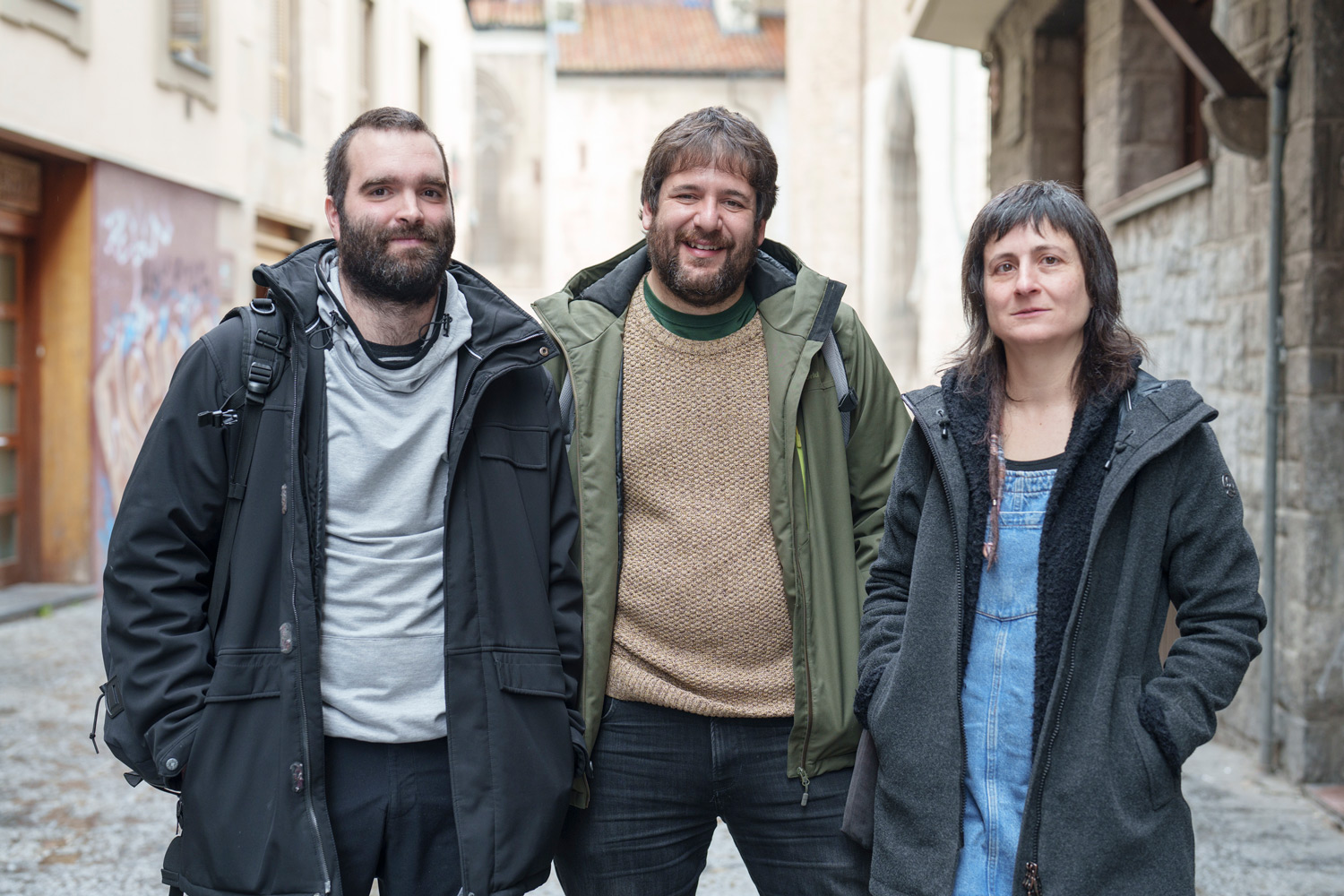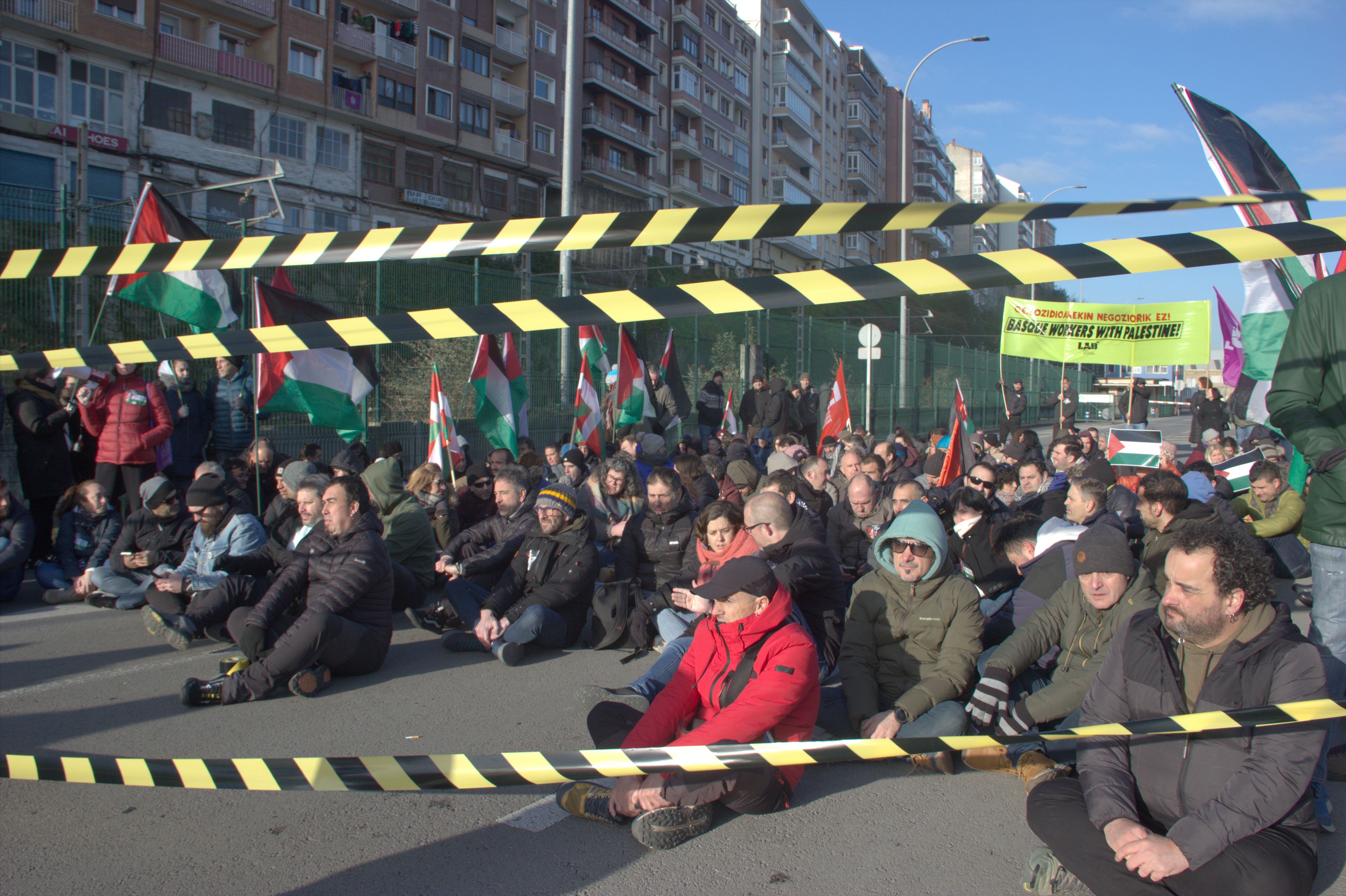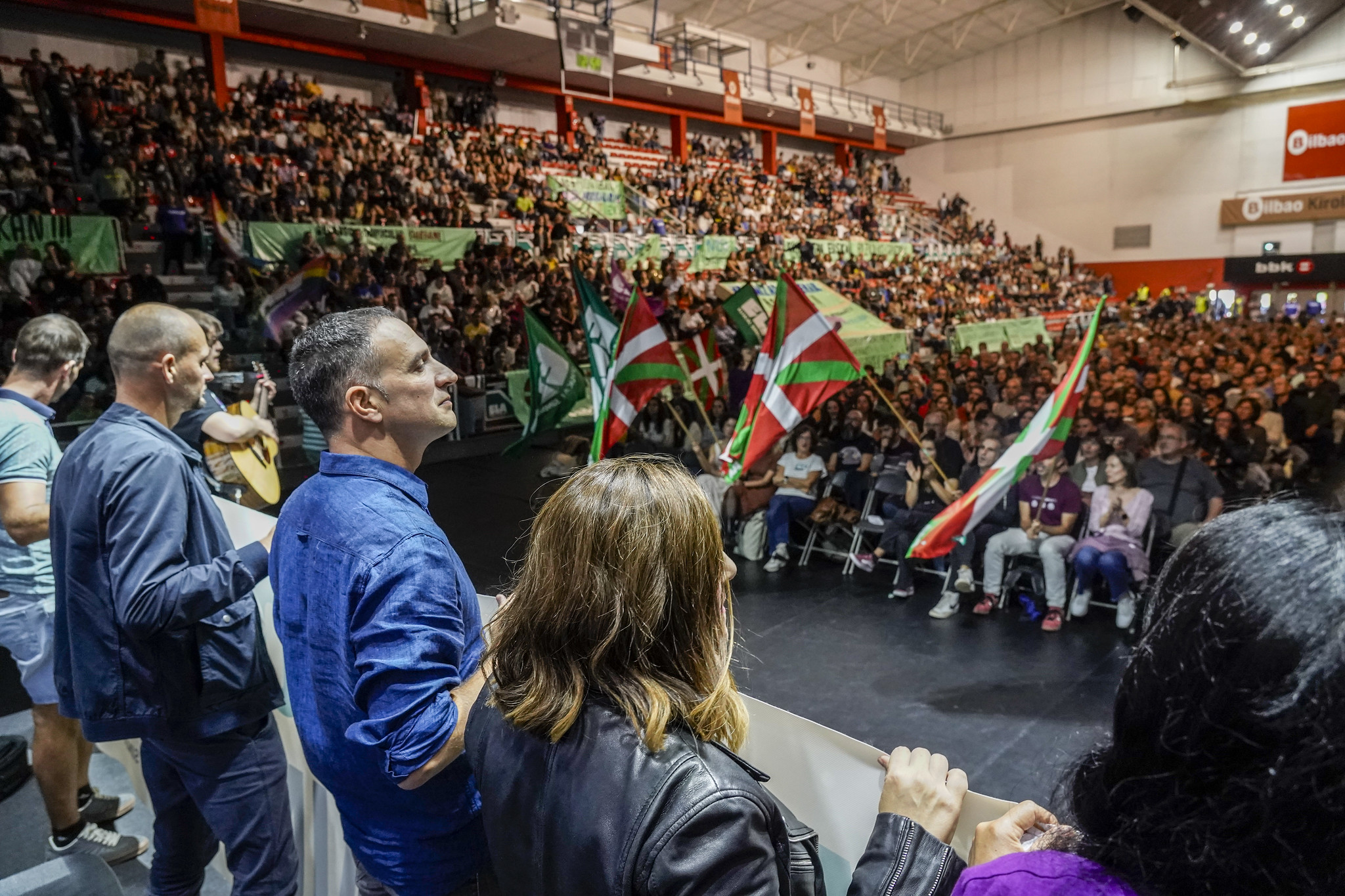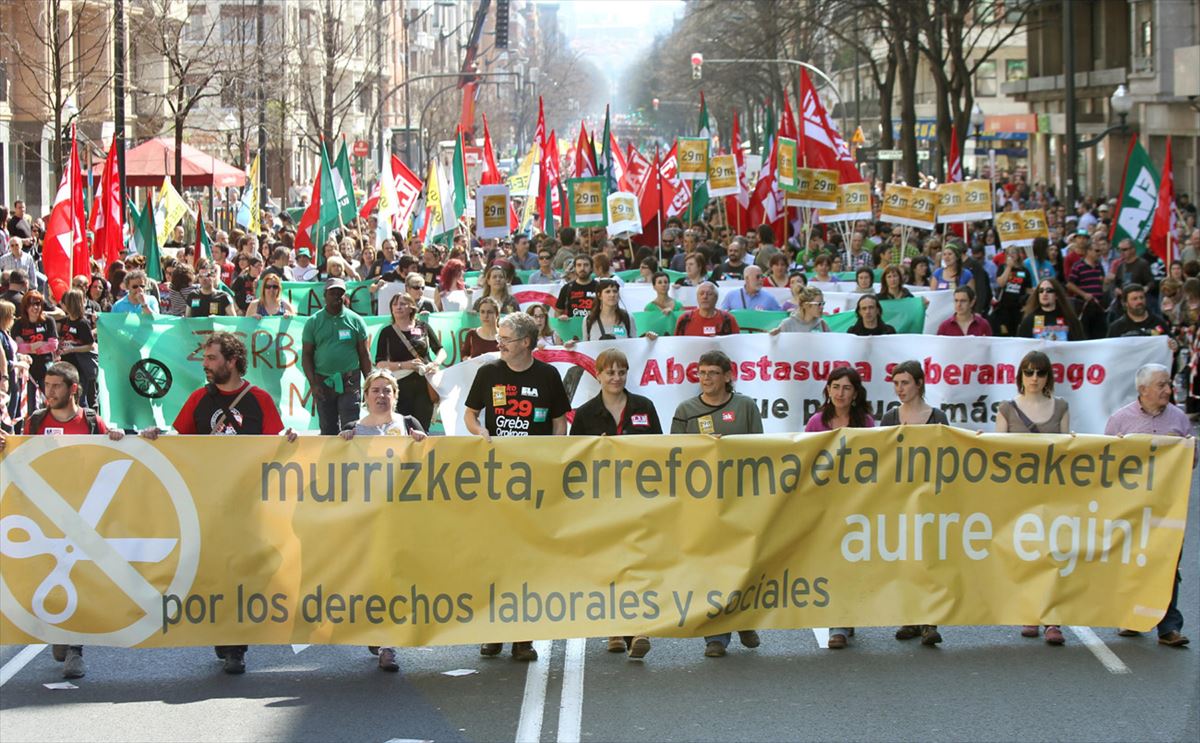From that forest on the left Abertzale, a single tree standing
- In the mid-1970s, the Basque sociopolitical landscape presented a huge dance of acronyms, among which were several from the Abertzale left. Half a century later, due to the wear of time or repression, the vast majority of them are missing, there is only one tree standing on this shore: LAB syndicate.

The Abertzales Workers Commissions were founded in 1974, but on a nationalist basis. That same year, in the fall of the same year, several of these groups met and founded LAB, the Abertzales Workers Assembly. The first National Congress was held around February 1975 in Biarritz, and the union began its journey with the workers’ movement at a boiling point. Franco's dictatorship was at its end and, among other things, the tensions between miles and poly-miles inside ETA crumbled and in LAB they also suffered. In any case, it advanced, shifting the national problem to factories in a revolutionary trade union environment of then and adding a socio-political character to a purely trade union character, so it was defined 50 years ago and is still in it today.
The 1970s were hard years for LAB, among others, due to internal tensions. In 1977, the Moncloa Pact was signed in Spain, which raised a kind of wall between the unions that rejected and accepted the reform. On the Abertzale left, Herri Batasuna and Euskadiko Ezkerra drew these two tracks, and this division was reflected in LAB, in which the two sectors continued to act together. Thus, the II LAB Congress of 1980. In Congress, the Left sector in the Basque Country addressed ELA.
The years were hard at all levels. At the international level, neoliberalism was dedicated to hardening its teeth to carry out aggression. The oil crisis of 1973 was shaking the world economy and Euskal Herria was no exception. The transition took place in Spain. The armed action of two branches of ETA was very harsh. In the early 1980s, the Statute of Gernika and the Amejoramiento de Navarra began on foot. An attempted coup d ' état took place in Spain on 23 February 1981. And in 1982, the PSOE came to the Government of Spain and began a drastic industrial reconversion.
The Moncloa Pact began to consolidate the new institutional landscape and gradually the Basque trade union model became concrete until the 1990s: on the one hand, UGT, CCOO and ELA were structured around the institutional scheme; and on the other hand, LAB, CNT, SU, CSUT... and other small unions that disappeared later. The former LAB leader, Rafa Díez, later summarized the groups with these words: “union management” and “union confrontation”.
At the
extraordinary congress held in 1980, LAB decided by a large majority to include the Socialist Abertzale Coordinator (KAS), an organization that was already leading the non-Basque against reform: Neither the Constitution, nor the Statute of Gernika, nor the Amejoramiento de los Fueros, nor the Pact of the Moncloa. Jon Idigoras, Joselu Cereceda or Alberto Pelaez were some of the names that stood out in the union. The early years were still modest in terms of representation and affiliation, but it grew a bit faster: In the 1980 elections he obtained 785 delegates (4.53 per cent) in Hego Euskal Herria, compared with 1,876 in 1986 (17.26 per cent).
Like the rest of the forces on the Abertzale left, especially Herri Batasuna, LAB grew a lot in those years, and in the second half of the decade it came to negotiate with the ETA government in Algiers. On the contrary, the economic and social situation in the Basque Country was very hard and the unemployment rate exceeded 23% in 1986. Stimulated by PSOE, industrial reconversions fell relentlessly on workers and their resistance was not negligible: The struggles of the Euskalduna Shipyards became symbols of the workers’ struggles of that time. Although with different intensity, the situation in the developed countries was similar, and later it was called neoliberalism, which put the leftist parties, the unions and, in general, the whole labor movement against the wall. It would be nothing more than the beginning of capitalism in a new way, whose bites have remained in the decades to come.
In response to this situation, a general strike took place on 11 December 1988: “Surely there has never been such a successful strike in contemporary Spanish history,” says Navarro historian Emilio Majuelo. In the book Abertzales Workers Commissions (1975-2000). Majuelo is probably the work that analyzes the history of LAB in detail and has been an important tool for this report. Majuelo was succeeded by the journalist Joserra Bustillo, a member of LAB, who was in charge of making known the history of the LAB union. Come to red! (2000-2005) and this has also served us well.
Also in 1985 a small union emerged that would be a LAB travel companion, around the Basque alternative left organized beyond the left abertzale, ESK, which is still active today. Regarding the contents of the collective agreement, Majuelo also believes that at the end of the LAB decade it approached the perspective that ALS, UGT and CCOO had, but the difference was in the ways of defending the agreements. Little by little, the conditions for the event that in the 1990s was key to Basque unionism were created: Collaboration between ELA and LAB.
The paradigm shift was then situated in the two areas of the violent conflict in the Basque
Country: ELA in the ample space against ETA, and LAB in the Basque National Aspakena Movement. The Ajuria Enea Pact also managed to corner the Abertzale left in a different way than before, and it turned out to be a face-to-face between the two blocs. Well, the joint action of ELA and LAB was at that time the most significant gap in the attempt to isolate the left Abertzale.
Several factors facilitated this collaboration, and one of the most important was the VII ELA Congress of 1988. It was at Congress that Joxe Elorrieta replaced Alfonso Etxebarria in the general secretariat and represented the beginning of the great change that has brought ELA to this day. Thus (also) were the Things of Germán Kortabarria, head of ALS communication for many years. In the book ELA 1976-2006 it was named “Perestroika de ELA” – words of historical militant Balentin Bengoa.
However, the road was gradually made, the two unions were very far from each other. In 1991 ELA produced a trade unionism report for the year 2000, which clearly shows the timid view of ELA towards LAB: “Strictly speaking, this organization is not a trade union, but a transmission belt for the plants of the KAS alternative.” And in the report there are also reasons for LAB's mistrust of ALS for many years, since these lines reflect on a possible single Basque Abertzale syndicate: “The document dares to reflect on the importance of having a single organization for any Abertzale trade unionist,” Kortabarria said in his book. As we shall see later, at the end of the decade we will see with what force this mistrust emerges.
That key February of 1994, in the early 1990s, new movements took place and for
a moment ELA, LAB and CCOO acted together. In 1992 Rafa Díez was appointed Secretary General of LAB and together with Joxe Elorrieta became the symbol of the collaboration of both trade unions in the coming years os.En in 1994 the most significant moment of this unitary activity occurred, when on 19 February both trade unions convened a joint demonstration under the motto The Basque workers are masters of ourselves. It was a "historic day" for the two secretaries-general. Rafa Díez’s 2015 reading of the Ipar Hegoa Foundation in Ikusmira is not in vain: “This year is the turning point of all retrospective studies of Basque unionism.”
The Lizarra-Garazi Pact, signed in 1998, has always been recognised as an important collaborative effort between the two unions, generated much enthusiasm in broad sectors of Basque society and opened the era of the “Basque trade union majority” – ELA, LAB, ESK, Steilas, EHNE and Hiru – which has continued indefinitely to this day. In the 1994-95 trade union elections, ELA obtained 35.27% of the representation in Hego Euskal Herria and LAB 14.56%, both with 49.83%. For many reasons, ELA has long realized that UGT and CCOO could not carry out their trade union model. Kortabarria acknowledges this: “ELA needed LAB to make its trade union superiority effective.” In 1995, LAB again went through another important milestone: it exceeded 15% of representation, which allowed it to participate in the institutional setting of social negotiation, where ELA and LAB would now have a majority. One of the greatest moments of this relationship was the general strike that in May 1999 jointly promoted in Hego Euskal Herria in favor of 35 hours.
The
Mallabia meeting was held in June 1999 in Mallabia in order to advance the relationship between ETA and the Government of Navarra in the dismantling phase. According to his book Kortabarria, present at that meeting, ELA proposed to LAB to take a more common step: “The two unions would manage the creation of a foundation in equal parts; the joint analysis of a possible union approach for Ipar Euskal Herria; and provide them with a permanent structure of coordination to the relationship between ELA, LAB and other unions with which they collaborated.” It also left on the table the possibility of a single, common box of resistance. “The amazement of LAB representatives reached its peak,” says Kortabarria.
LAB rejected the proposal in the coming days and considered it as “EEP to swallow LAB”. As Joserra Bustillo explains in his book, Rafa Díez said that “this approach is considered by LAB as an attack on collaboration.” And Bustillo also saw it. “The political events of that time concealed ALS’s intention: The appropriation of LAB”.
In any case, this collaboration between the two unions was also effective for the future, but its relationship has been a rollercoaster over the last three decades, always with mutual mistrust in the air and now in a unit of action crossing very harsh accusations between them. Díez wrote thus about the importance of the relationship at that Ikusmira 2015: “We have to look resolutely and with a strategic dimension at the collaboration of the Abertzale syndicalism. It’s possible, it’s necessary, but it also has no alternative to the challenges we face.” The latest effort to shape the partnership was made in 2017, with a joint declaration in defence of a unilateral and social sovereign process, in the context of the Catalan referendum. But the discussions immediately abandoned the attempt.
In the first decade of the
20th century, the era of the legalization of the Abertzale left opened. He didn't run over to LAB, but there the indictment was here, the syndicate was also squeezed. Proof of this is that in 2009 the National Police arrested Rafa Díez and, until 2017, had to spend six years in prison for an alleged crime of ETA integration in the Bateragune case. Díez was no longer Secretary General of LAB, but he was still the reference person of the union.
This situation also had its back, as in this narrow left Abertzale step it remained the most important legal reference of the LAB movement, and its contribution was very great on the way for ETA to leave the armed struggle in 2011. In the new century, moreover, it continued to increase its strength: In 2005 it represented 15.11% of union representation and 37%. 812 members. This growth has continued until 2024: In the trade union elections of 2023 reached 19.60% of the representation of Hego Euskal Herria and by the 50th anniversary of 2024 the barrier of 50,000 members has been overcome.
In the early years of the 2000s, extraordinary movements took place in the Basque trade unionism in relation to collective bargaining. Thus, in 2004 UGT, CCOO and LAB reached agreements in Metallurgy, which was repeated in 2005, and in Osakidetza. This led to a great anger with ALS. Movements of this kind were virtually unthinkable in the 1980s and 1990s, but have been repeated several times in the 21st century. Also in the context of the new agreements, the first official meeting of the secretaries-general of LAB and UGT was held in February 2005. At that time, the Abertzale left and the PSOE were already preparing the process to be carried out in Loiola in 2006.
In the economic and trade union sphere, they were also hard years: Since 2008, the strong financial crisis that opened up in the economies of the developed countries caused an earthquake in Basque society and, led by the Basque trade union majority, between 2009 and 2013, six general strikes were organized in Hego Euskal Herria. However, the narrowing of neoliberalism continued and regressed in the rights of workers; as an example, the retirement age was prolonged from 65 to 67 years, purchasing power has been reduced and precariousness has become a daily bread, especially among younger people. In general, the most vulnerable sectors of society were very weakened from this crisis. Former Secretary General Ainhoa Etxaide made a harsh sentence in the book published by LAB on the occasion of her 50th anniversary: “We cannot avoid the imposition of the neoliberal agenda.”
In
this whole context, LAB had to continue to reinvent itself. We have to go back to 1992 to see how the women's area takes its first steps officially, when the Women's Framework was created, which was created within the framework of the III Women's Fair. In Congress, a third of the participants were already women, but in the direction chosen in Congress there was only one woman of 23. With the new century, the demands of feminism were being strengthened, and that was also reflected in society. Thus, in 2008 Ainhoa Etxaide replaced Rafa Díez in the general secretariat, and in 2017 Etxaide was replaced by another woman: Garbiñe Aranburu, this time with the title of general coordinator. As of 2022 Aranburu shares the coordination position with Igor Arroyo. Without this progressive reactivation of feminism, it is hardly possible to understand the strikes of March 8 and those of care that would come later.
In 2000, LAB also extended to Ipar Euskal Herria, and is currently also the coordinator of the same, Argitxu Dufau. Despite having suffered on numerous occasions the boycott of the most important trade unions in France, such as the First May in Baiona, it has managed to overcome this wall, and in addition to its working environment, it works in the world of housing and ecology. The twentieth century has brought to the unions the need to readjust them to many aspects, either by the impulse of the feminist movement or by the influence of climate change. In 1974, the traces of LAB were independence and socialism, and today it continues: “Independence is the only state that guarantees the means and conditions for the constitution of the Basque Socialist State.” Together with the Sortu and ERNAI, the organizational framework of the Abertzale left is now being formed.
LAB is a trade union class, but it is also defined as “socio-political and counter-opposition” and incorporates to the impulse of new adjectives such as “feminist, anti-racist, inclusive, internationalist and environmentalist”. The claim of 35 hours at the beginning of the century has become a demand of 30 hours, to give a certain image to the complex issue of growth, in which there is a minimum wage demand of EUR 1,400, and in which the Community public care system has also occupied a fundamental place. And in these travesuras, 20% of the union representation of Euskal Herria is about to overcome that deseo.En
2021 the professor of the UPV/EHU Jon Las Heras and the economist Lluís Rodríguez analyzed the social conflicts in Euskal Herria and in the Spanish State, and they compared the number of strikes in one way or another: It is not a bad compass for a union, for times when the unions, in general, do not live hard times. LAB has come to the watchtower of half a century and everything points out that it is in a position to meet the great challenges of modern unionism.
Mahai Orokorreko sindikatuek salatu dute Gobernuak utzikeriaz jokatu duela ordezkaritza sindikalarekin negoziatzerakoan, horren adibidea da Estatutu berriaren negoziazioan ezarri duen blokeoa. Gobernua Mahai Orokorrean gai horiek guztiak negoziatzera esertzeko ahalegin ugari eta... [+]
LABek, STEILASek, ELAk eta CCOOek greba egutegi bateratua aurkeztu dute Bilbon: martxoaren 25, 26 eta 27, eta apirilaren 1 eta 2. Egungo hitzarmenak aldarrikatutako edukietatik urrun kokatzen direla adierazi dute, "bai sukaldearen eta garbiketaren kolektiboan zein... [+]
Nahiz eta Nazio Batuen Erakundeak (NBE) 1977an nazioarteko egun bat bezala deklaratu zuen eta haren jatorriaren hipotesi ezberdinak diren, Martxoaren 8aren iturria berez emazte langileen mugimenduari lotua da.
2024ko laneko ezbeharren txostena aurkeztu dute LAB • ESK • STEILAS • EHNE-etxalde eta HIRU sindikatuek aurtengo otsailean. Emaitza larriak bildu dituzte: geroz eta behargin gehiago hiltzen dira haien lanpostuetan.
Grebaren bezperan Hezkuntza Sailak “edukirik gabeko” mahaia deitu zuela eta sindikatu deitzaileak “errespetatu gabe” akordioa “antzezteko” gutxiengoa duten sindikatuak “erabili” nahi izan zituela salatu ostean, beste bi greba... [+]
Lehen aldia da Hego Euskal Herriko euskal gehiengo sindikalak armagintza industriaren moldaketaz taldean eta modu publikoan hitz egiten duena. Aurreko hilabeteotan mugimendu antimilitaristak bilera bana egin du lau sindikatuokin, produkzio militarra “sozialki... [+]









